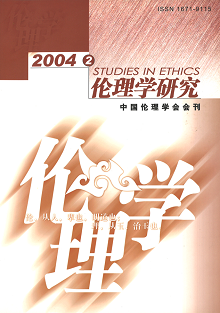|
|
Comparison and Investigation of Nozick's Holding Justice Thought and Rawls' Distributive Justice Thought
LIU Xukuan
2004(2):
110-117.
What are the standards that ensure just distribution? If distributionmust accord with just distributive principles,how to distribute the basic rights and elements of equality? Rawls and Nozick deeply investigate distributive justice in different directions. Starting from the right of equality, Rawls animadverts utilitarianism and substitutes it with "two principles as fairness and justice", and thinks everyone should be equal and people should distribute wealth according to "the principle of justice as fairness", unless we have the enough reasons that can justify everyone should be unequal. He requires distributing public resources and systems of liberty by the principle of justice as fairness. Starting from inalienable rights of man, Nozick thinks that everyone should be unequal, unless we have sufficient reasons that can justify everyone should be equaland without the consent of the individual, others can not infringe upon his property and rights with any excuses. He advances the justice of "holding" with a theory of qualification and entitlement, and maintains individual economic and free rights and the right of property. This thesis also differentiates and comparesbetween Rawls and Nozick in the following important aspects: utilitarianism, the right of property, the national function, liberty and equality, and the significance of social stability, etc.
|



